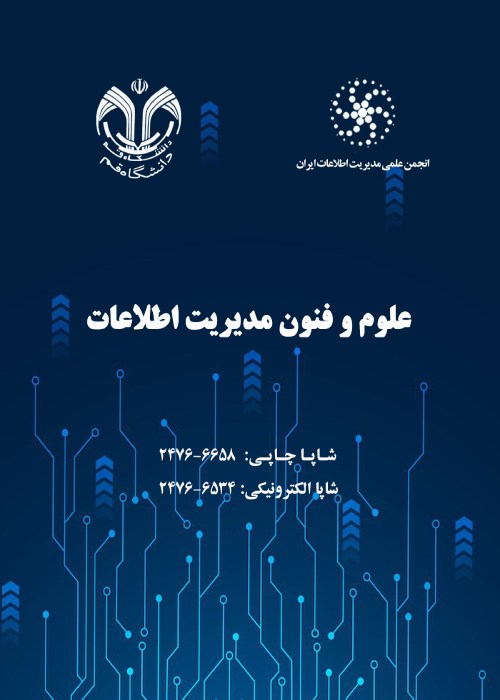Investigating the Impact of Managers' Attitudes Toward Change and Human Resource Development on Knowledge Management in University Libraries
Nowadays, students and the scientific community are eager to improve their access to and receive support from information services. Libraries and information centers are making significant changes to keep up with this phenomenon. In the ever-changing landscape of knowledge, the role of information specialists has also evolved. Some researchers believe that the only solution available for information professionals to overcome all the problems caused by the ever-changing environment in the digital age is change management. Therefore, the present study was conducted to investigate the impact of managers' attitudes toward change and the development of human resources on knowledge management in university libraries.
The present research is descriptive in nature and purpose, and it employs a correlational survey approach for data collection. The research's statistical population consisted of 49 university library managers in Fars province in 2021-2022, who were selected using the census method. To collect the data, organizational change questionnaires based on ADKAR's Model (Hiatt, 2006) were utilized. These questionnaires included six components: participating in change, supporting change, not resisting, preparation for change, informing, and understanding the need for change. Additionally, Shai's (2006) human resource development model, consisting of four components (staff training, competence development, information sharing, and empowerment), and Lawson's (2003) knowledge management model, comprising six components (applying knowledge, disseminating knowledge, organizing knowledge, storing knowledge, knowledge creation, and knowledge absorption), were employed using the Likert scale. The validity of the questionnaires was confirmed by assessing both the face and content validity. The reliability of the questionnaires was confirmed with estimated values of 0.74, 0.81, and 0.78, respectively. To assess the normal distribution of the data, the Kolmogorov-Smirnov test was conducted. To test the research hypotheses, the beta regression coefficient (path coefficient), the t statistic, and the Pearson correlation coefficient were utilized with PLS software.
The research results revealed that the attitude towards change significantly impacts the development of human resources in academic libraries, with a path coefficient of 0.733 and a t-value of 7.016 at a 95% probability level. This indicates that a one standard deviation increase in the attitude towards change leads to a 0.733 standard deviation increase in the development of human resourcesin academic libraries. On the other hand, the impact of attitude toward change on knowledge management was confirmed with a path coefficient of 0.746 and a t-statistic value of 254.8. The Pearson correlation coefficient between the two variables is 0.735, and with a significance level of 0.00, it can be concluded that there is a positive and significant correlation. Knowledge management also had a significant impact on the development of human resources, with a path coefficient of0.483 and a t-statistic value of 397.2 in the libraries under investigation. The study confirmedthe direct impact of attitude toward change on human resource development. It also found that knowledge management serves as a mediator in this relationship. Based on the data obtained, thereis a 95% probability that the impact of attitude towards change on human resources development (0.483 ´ 0.746 = 0.360) has occurred through the mediation of knowledge management.
The current research provides a new perspective on the transformation of university libraries under study. Exploring the mediating effect of knowledge management and attitude towards change, as well as its positive and direct impact on the development of human resources, can provide a suitable strategy for the advancement of university libraries. This strategy should consider new methods of delivering services to customers in accordance with national and international standards.Based on the obtained results and the confirmation of all research hypotheses, it is recommended that university library managers prioritize emphasizing the benefits of redirecting human resources development and enhancing the capabilities and skills of employees.Developing a strategy to implement change as a positive force for achieving organizational goals and objectives necessitates training and developing new skills and capabilities to enhance the knowledge of both individual employees and the organization as a whole. This will enable them to effectively participate in the implementation of new goals and reduce the challenges associated with change.
- حق عضویت دریافتی صرف حمایت از نشریات عضو و نگهداری، تکمیل و توسعه مگیران میشود.
- پرداخت حق اشتراک و دانلود مقالات اجازه بازنشر آن در سایر رسانههای چاپی و دیجیتال را به کاربر نمیدهد.



